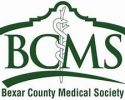Working in the healthcare industry can be extremely gratifying, but also stressful and busy. One way providers have fought back against a busy schedule is by hiring medical scribes. Not only do their services make life easier for a healthcare provider, but greatly improve the patient’s experience as well! But what kind of work does a scribe actually do? Here is a scribe job description to fill you in on the details, plus a couple of additional little-known duties that they also perform to save providers time and money.
Scribe Job Description
What does a scribe actually do? Essentially, a medical scribe is someone who records patient-provider interactions as they transpire via EHR (electronic health records) documentation. However, there is much more to being a scribe than this, and several other duties occupy a good portion of their time as well, such as doing extensive research and aiding the provider with any task directly involving the patient or giving additional assistance elsewhere. The role of a medical scribe, whether virtual or on-site, is to make the provider’s job easier by accepting a large portion of the workload that would otherwise prove tedious, expensive, and time-consuming.
Proofreading
Aside from their most prominent roles, as detailed in the scribe job description, there are some lesser-known duties that scribes are responsible for. One of these duties happens to be proofreading and editing medical documents to find errors or contradictions in order to keep the information accurate and up to date. This information could be things like test results, ongoing conditions, or clinical data. Likewise, they may also do a bit of spell-checking or sentence restructuring as well. They help ensure that all patient data is kept confidential during this process. This work helps keep mistakes to a minimum and saves time and money as a result–all the more reason to contact a scribe agency ASAP.
Clerical Tasks
Something that benefits the provider greatly but is often overlooked by many is a scribe’s ability to perform certain clerical tasks. Medical scribes act as a sort of assistant to the healthcare provider, and while they are not receptionists, it is a big weight off the provider’s shoulders when they are able to pick up some of these tasks, as it saves them time and energy. Some of these clerical duties might include sending letters via email, mail, or fax to other providers connected with a patient, putting together referral letters with the information of records available to them, preparing reports, answering calls, and more. This is one helpful duty you may not find in a scribe job description!
Time to Hire a Scribe
Medical scribes perform a number of tasks to make the patient’s visit go as smoothly as possible while saving the provider time that they would otherwise have to dedicate to checking medical records and recording data themselves. Whether it means documenting patient data, sending referral letters, or helping the provider directly, scribes can do it all, and hiring them is sure to save everyone valuable resources.
Ready to start saving time and money? Provider’s Choice Scribe Services can set you up with a high-quality, professional scribe that can do just that. Reach out today or call (210)-796-6976 to find out more.



